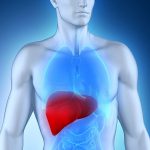
New (and pricey) hepatitis C medicines, such as Harvoni and Sovaldi, are living up to their promise and greatly reducing patients’ odds for liver cancer and death, a new French study finds. The news came as little surprise to one U.S. liver expert. The advent of this class of drugs “has led to almost universal cure of chronic hepatitis C infection,” said Dr. David Bernstein, chief of hepatology at Northwell Health in Manhasset, N.Y. Bernstein believes “this large study provides the best evidence to date to support the recommendations that all patients with chronic hepatitis C infection be treated with [these drugs].” According to background data in the study, about 71 million people worldwide have chronic hepatitis C infection, which can cause debilitating or fatal illnesses such as cirrhosis, liver disease and liver cancer. Over the last 15 years, these complications have tripled and it’s predicted that they’ll peak between 2030 and 2035, the researchers said. The new research was funded by drugmakers and included nearly 9,900 patients in France. About three-quarters of the patients were treated with the newer class of drugs, called “direct-acting antivirals,” while the other one-quarter were not. Direct-acting antivirals work quickly — over a course of about three months — to push liver-damaging hepatitis C virus to undetectable levels in patients’ blood. In the study, over a median follow-up of… read on >

























-300x200.jpg)










